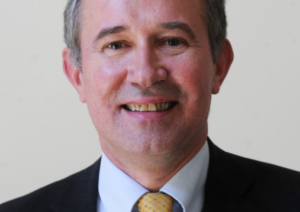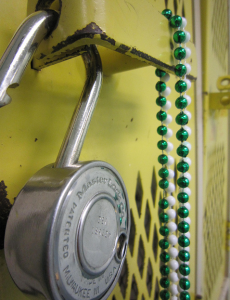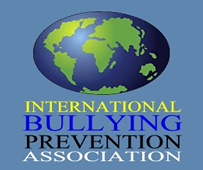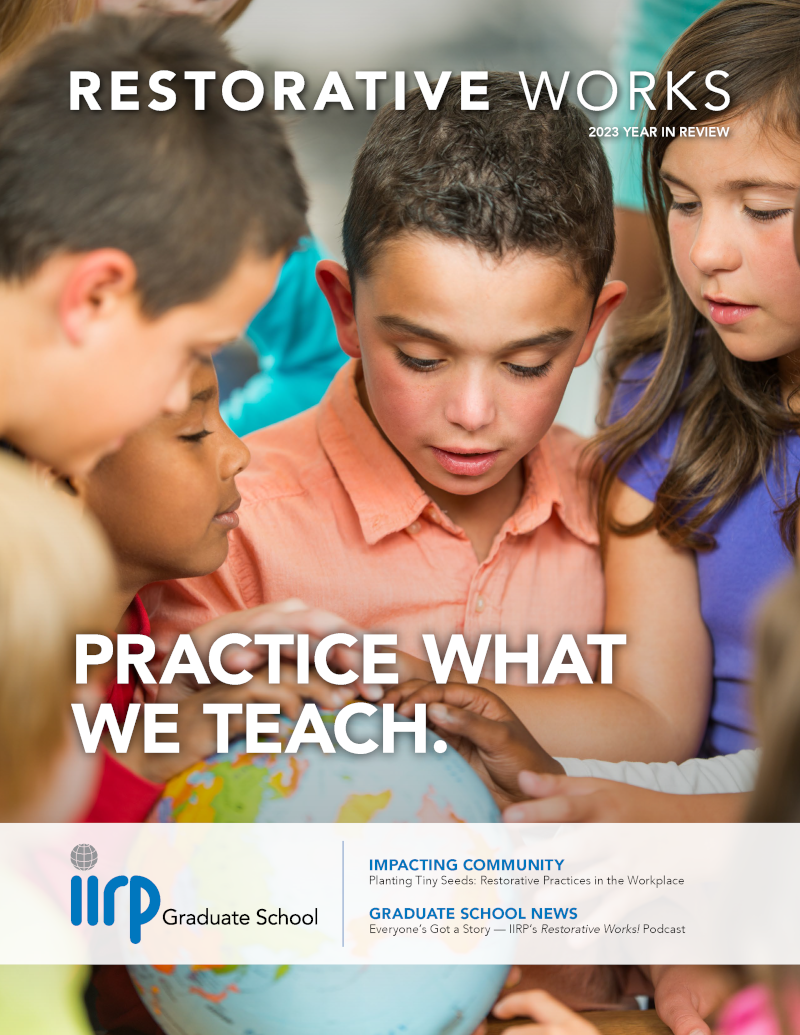News & Announcements
- Details
- Written by Joshua Wachtel
 A recent piece in EdWeek by Sarah Sparks discusses brain research that demonstrates the devastating long-term effects of childhood adversity.
A recent piece in EdWeek by Sarah Sparks discusses brain research that demonstrates the devastating long-term effects of childhood adversity.
The IIRP is offering professional development to deal with this issue, in events titled "Restorative Responses to Grief, Trauma and Adversity." Upcoming locations include the Denver area, New York City and Bethlehem, Pennsylvania.
Here are some selections from that article:
While educators and psychologists have said for decades that the effects of poverty interfere with students' academic achievement, new evidence from cognitive and neuroscience is showing exactly how adversity in childhood damages students' long-term learning and health.
- Details
- Written by Joshua Wachtel
 Photo by Mike Fisher at Flickr Creative Commons - The photographer notes in his comment: "The juxtaposition of the flag with this sculpture of an Indian made me think of Black Kettle, who was a Southern Cheyenne Indian chief. Black Kettle's people were camped on the Sand Creek Reservation in southeast Colorado in 1864 when a group of Colorado militia men attacked them. Black Kettle had often counseled peace with the white men and flew an American flag from his tipi. The soldiers attacked in spite of the flag and killed as many as 150 of Black Kettle's people. Black Kettle himself escaped across the creek, only to be killed a few years later in the Battle of the Washita River in Oklahoma."[/caption]
Photo by Mike Fisher at Flickr Creative Commons - The photographer notes in his comment: "The juxtaposition of the flag with this sculpture of an Indian made me think of Black Kettle, who was a Southern Cheyenne Indian chief. Black Kettle's people were camped on the Sand Creek Reservation in southeast Colorado in 1864 when a group of Colorado militia men attacked them. Black Kettle had often counseled peace with the white men and flew an American flag from his tipi. The soldiers attacked in spite of the flag and killed as many as 150 of Black Kettle's people. Black Kettle himself escaped across the creek, only to be killed a few years later in the Battle of the Washita River in Oklahoma."[/caption]
Laura Mirsky sent me this piece this morning, which both of us found moving. So often we think of restorative justice at the person to person level, but here's an example of community to community and nation to nation healing process, which must therefore take a different form.
- Details
- Written by Joshua Wachtel
 Nigel Richardson, Leeds City Council director of children's services
Nigel Richardson, Leeds City Council director of children's services
The project of Hull, UK to become a restorative city has since spread to nearby city of Leeds. Both projects will be highlighted Thursday and Friday, November 8 & 9 at a conference put on by Hull Centre for Restorative Practice, "A Tale of Two Restorative Cities."
The following from an article about the conference in the Yorkshire Evening Post highlights the focus on working with families and others outside the criminal justice system:
The conference which takes place on Thursday and Friday will include a presentation on how “restorative practice” is being used to resolve family issues within Leeds.
- Details
- Written by Joshua Wachtel
 Photo by Kate Ter Haar at Flickr Creative Commons
Photo by Kate Ter Haar at Flickr Creative Commons
More and more frequently I come across so many articles about school implementing various restorative practices programs in a given day or week that I might end up putting them aside or simply posting links on IIRP's Twitter feed. Today, though, I thought I'd just post a brief summary of four links that came through last week so people could get a sense of the types of story I'm seeing more and more frequently around the world:
MEND (Mediating Ends Negative Disagreements) – The Limestone District School Board and Youth Diversion (in Kingston in Canada) have been working together for the past six years to develop a new strategy to deal with conflict. "What we have been doing is putting a restorative approach into schools with the idea that, rather than focusing on blame and punishment we are focusing on developing and maintaining relationships and making sure that people understand the impact of their actions on one another," explained Judy Tetlow.
School board battles bullying – Also in Ontario, Canada, this article notes that "The Ontario Legislation passed an Accepting Schools Act in September which gives administrators and teachers an opportunity to address not only the victims, but the bullies too."
- Details
- Written by Joshua Wachtel
This week's "Sunday Video" comes from Colorado, which hosted its 1st statewide Restorative Justice summit in August. Dominic Barter and Peter Block were keynote speakers. But this six-minute video also demonstrates the open space format used to generate active participation from all attendees.
For another perspective on the summit, there's an episode – 47 minutes – of the Unitive Justice by Sylvia Clute podcast. Clute attended the summit and shares her experience in depth. Click here to listen.
- Details
- Written by Joshua Wachtel
 IIRP Instructor Lee Rush will be presenting a workshop entitled “So What Happens Next?: Using a Restorative Practice After a Bullying Incident,” at the 2012 International Bullying Prevention Association’s (IBPA) annual conference to be held next week from November 4-6 in Kansas City, MO.
IIRP Instructor Lee Rush will be presenting a workshop entitled “So What Happens Next?: Using a Restorative Practice After a Bullying Incident,” at the 2012 International Bullying Prevention Association’s (IBPA) annual conference to be held next week from November 4-6 in Kansas City, MO.
This 9th annual conference will be attracting over 700 persons from throughout North America and abroad.
“For many in our field, the intersection of using restorative practices in the interest of preventing bullying seems like a perfect fit,” Rush said. “However, the notion of facilitating a face-to-face conversation with involved students after an incident of bullying is much more controversial and raises many questions.”
- Details
- Written by Joshua Wachtel
IIRP director of continuing education John Bailie co-hosted an important webinar last week with Michigan State University's Rick Shafer and Washington University in St. Louis’s Molly Pierson. The topic of the webinar was an "Introduction to Restorative Justice" and was targeted to university student conduct administrators. In addition to responsive measures to wrongdoing on campus, time was also devoted to restorative practices for building community in residence halls.
Several dozen administrators from such schools as University of Wisconsin-Madison, Harvard, NYU, Reed College and University of California-Berkeley participated to learn how to bring restorative practices to their campus.
For those who could not participate, ASCA is making the webinar available for purchase in their online store here.
For more information about IIRP's Building Campus Community program, click here.
- Details
- Written by Joshua Wachtel
In Nova Scotia, two article discuss new policies to support restorative responses in schools throughout the province. Clare Mellor in the Chronicle Herald writes:
[T]he provincial Education and Justice departments announced they are putting together a provincewide framework for schools who want to use a restorative approach to managing conflict between students.
During the next three years, the two departments will share the $500,000 cost of implementing policies and a list of resources and contacts for schools that use the program.
- Details
- Written by Joshua Wachtel
I missed posting a video yesterday, so I'm making up for it today. This one-minute vid was posted along with an article at Voice Waves titled "Students and teachers find restorative justice more effective." The piece discusses a student who is upset about something happening in class and requests a restorative circle from the school dean. Most of the circles discussed in the article are responsive, but the video below, featuring restorative justice coordinator Robert Howard, seems to be promoting a more proactive use of restorative justice:
- Details
- Written by Joshua Wachtel
 This is big news from the United Kingdom, where national legislation is being considered to allow restorative justice for victims of adult crime. The Restorative Justice Council in UK sent this news flash out in a recent email:
This is big news from the United Kingdom, where national legislation is being considered to allow restorative justice for victims of adult crime. The Restorative Justice Council in UK sent this news flash out in a recent email:
In plans published today, new legislation for restorative justice with adult offenders and their victims will be introduced through an amendment to the Crime and Courts Bill. This is part of the Government’s response to the Punishment and Reform: effective community sentences consultation.

Restorative Works Year in Review 2023 (PDF)
All our donors are acknowledged annually in Restorative Works.
